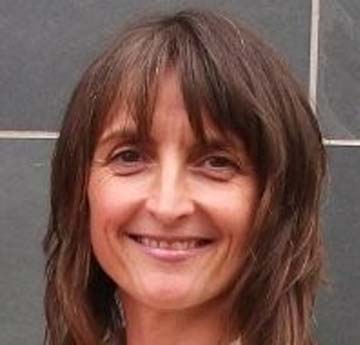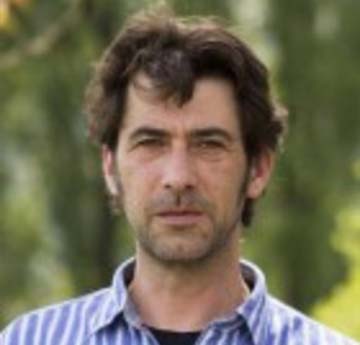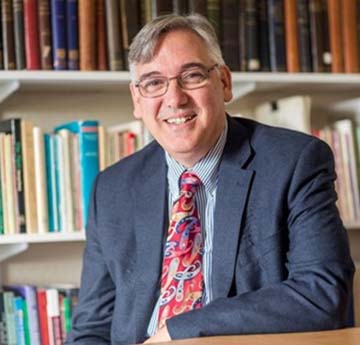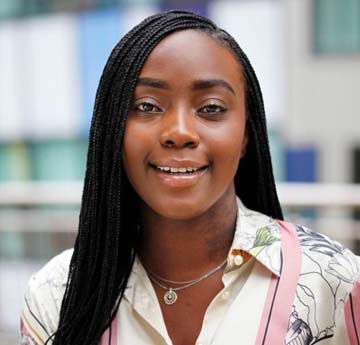Professor Martin Stringer was Senior Pro-Vice-Chancellor for Education at Swansea University for over 7 years and has many years’ experiences in higher education, in his own words, he joined the profession, primarily through the love of teaching. In 2015, Professor Stringer joined Swansea University as a Pro-Vice-Chancellor, where he had the massive responsibility for learning and teaching and student experience. Today he talks to us about his journey and his ideas going forward.
Episode 1 - Challenging times or just an Opportunity?
- About us
- Centenary 2020
- History and Heritage
- University Awards and Rankings
- Life on Campus
- Sustainability
- Artificial Intelligence Framework
- Swansea University Sport
- Study
- Campus Development
- Press Office
- How to find us
- Virtual Tours
- Our Faculties
- Job Opportunities and Working At Swansea
- Academi Hywel Teifi
- Global Engagement
- Academic Services and Academies Directorates
- Accessibility
- Inclusivity and Widening Access
- Our Strategic Direction
- Staff profiles
- Values
- Hillary Rodham Clinton Global Challenges Programme
- Morgan Advanced Studies Institute (MASI)
- The Technician Commitment at Swansea University
In this episode
Mandy Jack

Stuart Henderson

Episode Resources
Transcript - Part 1 of 4
Mandy Jack: Hi I'm Mandy Jack, and this is my colleague, Stuart Henderson. And we are part of a team of academic developers at Swansea university who provide support and promote good learning and teaching practices and experiences. Welcome to A Pinch of Salt Swansea universities learning and teaching podcast if it has anything to do with learning and teaching and higher education let's make sure everyone knows about it.
Today's guest Professor Martin Stringer was born in Tanzania educated in the North of England and currently the Senior Pro Vice Chancellor at Swansea university, South West Wales. Martin has been in higher education for just over 20 years and in his own words, he joined the profession, primarily through the love of teaching. He affirms that, the engagement with students, challenging their assumptions, and watching their growth in critical skills and knowledge, continues to give him a buzz. In 2015 Professor Stringer joined Swansea university as a Pro Vice Chancellor, where he has the massive responsibility for learning and teaching, and student experience. He continues to place, increasing student voice, and putting students at the centre of all decisions around learning and teaching, and their welfare, at the heart of what he does. The concept of interdisciplinary work and inclusivity is threaded through all the successful projects Martin has been involved in, from his theological work to his responsibilities in his current role as pro Vice Chancellor for education at Swansea. There are plenty of strong and rewarding themes for us to discuss today, so without further ado. hi Martin and welcome to A Pinch of Salt.
Martin Stringer: Thank you very much, and very pleased to be with you.
Stuart Henderson: Let's jump straight on into the questions and Martin if you don't mind. As Mandy mentioned, you were born in Tanzania and ended up in in Swansea and doubtless there's been many places, and things that have happened in between, so what initially drew you to higher education as a vocation.
Martin Stringer: Gosh that's a difficult one. I think. The draw really is to education. A lot of my family, my sister is a primary school teacher my father was head of a primary school, a number of his sisters and my mother's sister we're all in education, education is sort of very much in the blood, it's part of who I am, and sort of what I was brought up to do. I think the fact that I ended up in higher education comes, because having finished my undergraduate degree, I was encouraged to go on and do a PhD, and then I did some community work for a while, but it seemed fairly clear, that going into higher education, at that point, was the obvious step to make.
Mandy Jack: That's interesting have there been any surprises along the way, did you ever think of changing direction.
Martin Stringer: There have been many surprises! I guess I have changed direction in some ways. Education I would say, I went into the university, primarily because of the teaching side, it's working with students it's engaging the students it's developing students, building on their creativity, all that sort of stuff that was really sort of part of what I wanted to do. Actually, useful get into higher education, there was also a research element and be fascinated by researching religion and other things, but that was sort of incidental, I suppose, to the teaching side, I was doing but I found myself enjoying the research and particularly getting much more involved in the city of Birmingham and working with different religious communities and really sort of finding that fascinating. And then I started also moving much more into sort of management and leadership and found myself moving away from students. Perhaps doing more with the staff and engaging with all the different things that you've got to do to sort of run a department and then a school and then a college and currently a university.
Stuart Henderson: Lots of different challenges that you've sort of met in those different areas of the progression your career I don’t doubt. What, do you think need to be the biggest challenge that you've had since joining Swansea university and how has that made you feel.
Martin Stringer: Go gosh that's a difficult question. I'm not sure that I could identify a challenge in that sort of sense, so it's been extremely excited that there's a lot going on there it's a wonderful place to work. I had not thought a bit of a challenge, I think it says development progression working with colleagues building up what we had. You know I came into Swansea and it already had a very strong teaching culture, a very strong student engagement culture. I’ve built on that I hope we've developed it further we've explored different, elements of that and different aspects of that. I don't think I wouldn't see it in terms of challenge, it’s opportunity it's not challenge.
Mandy Jack: That is a nice way of putting it thank you Martin. So, what would an average day look like in the life of a pro-Vice Chancellor at Swansea university if there is such a thing.
Transcript - Part 2 of 4
Martin Stringer: There is no such thing as an average day. Currently an average day is starting on zoom at nine o'clock and finishing on zoom at nine o'clock or something like that. But, know that the range of things that you get involved with is really quite immense and therefore you know, there are things that punctuate that we, the day the month, you know, there are regular meetings of learning and teaching committees of students engagement committees and all that sort of thing. But you're also giving lectures talking to people in different parts of the university you're engaged with staff. Listening to some of their bright ideas, and the things they want to develop, engaging with HEFCW and Welsh government at different times, or with the UK Government even. It varies so considerably from day to day today as the range of things that have to be engaged with and dealt with.
Stuart Henderson: Thank you very much. From the range of things that you've been talking about just about having to approach in your role. Is there any particular thing that you perceive as your sort of biggest success story, since you became pro VC something maybe that you're particularly proud of having instigated or having been a part of?
Martin Stringer: The thing that I think I’m most proud of in terms of Swansea and the university is what's happened over the last 12-18 months, through COVID. In a sense, not planned, of course, we didn't know it was coming, but it has been the culmination of a lot of what I’ve been doing for the last five years and what's emerged as we went into COVID was an incredible team of people. The directors of learning and teaching, colleagues in SALT, colleagues in SAILS, colleagues in SEA, colleagues in different parts of the university. Actually, all working together to address this incredibly difficult problem, a series of sort of issues and. transforming the way we work as a university within a very short space of time, but it was not something that you know, I needed at that stage, to tell everybody what I wanted to do we came together as a team. And what I’ve been trying to do over the last five years it's very much build individuals up to encourage people across the university who got talent and commitment in terms of learning and teaching who are developing their own initiatives, those who got particularly interested, in technology. In different ways of doing things, engaging things and the fact we've done all that and I have been so encouraging people over number of years, then when the crisis hit us, we were ready. And you know people work together they shared ideas they grew on their own experiences different people bought different elements of that together and the impact on students has been remarkable and the feedback we got from the students for what we were able to achieve over that period is really quite astounding, and you know that that's an incredible achievement.
Mandy Jack: Yes, it is, do you think do you enjoy remote working, do you think that that's you know something that has enhanced, this new way we come together as a group, as a university.
Martin Stringer: I don't enjoy about working in the slightest no it's not wouldn't be my choice at all, I am very much a person who sort of enjoy talking to an engaging with people. The one thing I really miss over this last 12 months is the conversations between the meetings, the cups of coffee, the sort of chat or gossip, whatever. Having said that, I think, in terms of the delivery, and in terms of what we've learned, there are elements of remote learning that have been very beneficial. I think a certain proportion of the students have found it extremely positive others find it much more difficult. There are certain elements in terms of some of these small group work, some of the lecture work that where it's. performed better be mostly other barriers breakout groups, etc, you to happen, we need to go back to that face to face, but there is a lot there's a lot of learning to be done, based on the experience of the last 12 months.
Mandy Jack: I guess we've all learned a lot over the last 12 months haven’t we.
Martin Stringer: Undoubtedly.
Mandy Jack: Lifelong learning features highly on your agenda for providing quality inclusive education, can you tell us why you feel that so important.
Martin Stringer: What is important to me is inclusive education. Education is not something that is restricted in any way to any particular group or to any particular sort of subset. So that's, as I understand that it's not just the sort of content. Or you know, whatever it is the way we engage it's the way in which you put a program together it's the way in which we work. On the process of learning and teaching the aim as far as i'm concerned is always to develop within the individual that desire for learning that ability to learn that sort of passion. For learning that comes through the fact is, you know what I want to try and instill across all our programs.
Mandy Jack: Can I just ask another question related to that, then. So what do you think Swansea does well in that regard, in inclusive education, what do you think we do well, particularly.
Transcript - Part 3 of 4
Martin Stringer: I think different parts of the university do different things well. But you know we recognize that there are different disciplinary approaches to things and trying to do a STEM based subject, a maths based subject, is very different from doing a health service based professional program or something in arts and humanities, or something like that. What we all do well, is that, actually, we listened to the students. It is one of the things we have developed, and I think is now sort of inherent across the whole of the university is that partnership with students. We could go further, I think you co creation of courses working together on some forms of assessment and things with the student body. There is much more that could be done with that, but the fact that we listen to the students and that happens, across all our disciplines. And therefore, you know people will actually do that, go that extra mile, to help the student, support the student and it's that sort of respect the student and engage with a student that has instilled that element of our passion for learning, creative learning and have that sense of a learning community that's part of I think Swansea it is about.
Stuart Henderson: So it makes perfect sense and I guess, to some extent we sometimes need reticence from, maybe academia for giving quite so much control over to the students, maybe they're just a little unnerved by that thought, but, as you say, I think a lot of the learning experience has to be such a personal thing that we have to maybe for the students in more to that aspect. So I mean thinking about some things are personal to us. Understand currently that you're writing a book at the moment, Martin, can you tell us a little bit about that.
Martin Stringer: I am writing a book, yes, it is a book on the Dogan people of West Africa I’ve been collecting art the Dogon people for some years. And also collecting books about them. I’m anthropologist by training and I'm interested in the way, particularly in the context of Black Lives Matters and things like that the way in which, Western academia and Western particularly anthropology but other subjects as well, have used African peoples. Exploited them in some ways, intellectually they're part of a discourse on art they're part of a discourse on anthropology that part of a discourse on tourism. A discourse will also be a whole bunch of other things as well health cetera but you never hear their voice, and I'm just fascinated by the way in which they have been used by different disciplines in different discourses. So, I'm drawing together that history. Their history since 1907, 1930 something right way up to date, the difficult ways they've been represented by others.
Stuart Henderson: Yes, I think that's something of this was far too easy for Westerners to do with the excuse that there was no written history for a lot of the Africans sort of people. Historically, so we've kind of had a good okay what rewriting whatever we thought might have been approved. For the history books.
Mandy Jack: Okay, so talking of writing this week's newspapers were saying that arts and humanities subjects are claimed to becoming the preserve of the elite in England, with government funding into art subjects being cut, how do we stop this happening Wales.
Martin Stringer: I’m not sure that we necessarily can there is a sense of which Wales does ultimately followed UK and some of the arrangements is still not certain in England is still under discussion. I think we have to challenge that it's going to be difficult, I think, once you start introducing differential fees by subject into Education, more generally, really are sort of setting up problems for the future. And I think. we've got to talk about the sort of equality of opportunity and access through this. I know why the UK Government wants to do this, they see education primarily as the basis of the economy and developing skills and it's cost benefit analysis that if you invest in those subjects that bring in money, etc. But actually if that, if that is their argument, then they really are not they're not seeing the whole picture, because it is the arts, it is even so things like computer games and the creative industries. It is museums, it is drama, it is those kinds of that you are a vital part of the UK economy, we need the artists. The civil services run by historians, they're the people who understand philosophy history language, etc. all subjects have a value.
Mandy Jack: Yes they do indeed don't they and we've got some fantastic links to a lot of those things you've said. We've got the Egypt Centre here in Swansea we've got some really fantastic arts and humanities links that go far beyond our university don't we so we are very fortunate here and what would your legacy be to Swansea university then.
Martin Stringer: Sounds as though I'm just about to disappear!
Mandy Jack: Oh Sorry! What would you like your legacy to be before you retire. I mean that's got to be another 20 or 30 years away!
Martin Stringer: Of course it has yes! The legacy is really the people. who are committed to work university.
Steve Beale: I haven't done my research, so please tell me if I’m completely wrong Martin, but I believe you've talked about decolonising the curriculum, could you talk a bit more about your work on that and sort of role of that importance of it at Swansea?
Martin Stringer: Yes, it's something that we've been encouraging and working very closely with students Union on. Decolonization I think is an important part of that sense of inclusive it's the way in which make the curriculum accessible to a larger number of people. The importance of students, whatever their characteristics it's not just race, but I think in sexuality and other protected characteristics, enabling students to see something of themselves in what it is that it's being taught. So the importance of having texts and examples and things, that represent themselves. There's some very interesting stuff that the Medical School did. Over the last year, just before Covid
Transcript - Part 4 of 4
they recognize that, in a lot of the examples, they were using about medical patient engagement, they were never showing people from African or black or Asian heritage. So, the students weren't seeing themselves and that's important so you're wherever students are coming from that opportunity to see something of themselves see something have role models in terms of academics, in terms of theories and ideas is a vital part of that sort of making learning open and possible to a very wide range of people.
Mandy Jack: Yes! and that's one of the most important aspects isn't it is feeling like you belong, to feel like the Community around you is where you need to be. I was in an inclusivity webinar event with the student Union recently and a masters student
describing himself as, a Jamaican, maroon, Cheven scholar said “as I walked towards an Folton house I saw the Jamaican flag flying and I just thought wow this place, this is for me, this is the place to be”, and he said that he felt that Swansea continued to do that for him, and it was the extracurricular things that we put on, and the student union events, it was all of those things, everything pulling together to make him feel like Swansea he was a community that he wanted to be part of so. You know that felt really good. I was quite proud.
Martin Stringer: So, we should be yes. I mean it’s just think that word belonging, I think is important and that is what we create that sense of community that sense of belonging, both within the sort of teaching and the students, staff engagement but, as you say, that as well.
Mandy Jack: Okay, well, thank you very much, I don't know there's anything else you'd like to say, or you know any questions you wish we'd asked!
All sort of come together, I think, and I think that's what's shone from Swansea is that you know we responding quickly to what our students are. are asking for were responding to the needs of staff, and you know, generally, I think, as you know, as a small country and one of the universities within that small country, I think you know we we've done pretty well and yeah.
Martin Stringer: I would agree with that entirely.
Mandy Jack: Well, thank, thank you very much.
Martin Stringer: Thank you okay good to speak to you as well, thank you very much, cheers bye.




